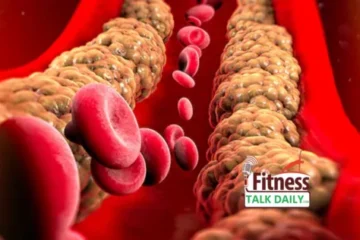Did you know that nutrient deficiencies and thyroid health are closely linked? Your thyroid gland, a small butterfly-shaped organ located in your neck, plays a vital role in regulating metabolism, energy, and overall body function. However, it relies on certain essential vitamins and minerals to function optimally. Without the proper nutrients, your thyroid can suffer, leading to various health issues.
Nutritionist Tanya Khanna from Alyse Health explains that several nutrient deficiencies can directly affect thyroid function. In this article, we’ll explore how nutrient deficiencies impact thyroid health and the critical vitamins and minerals that support thyroid health.
How Nutrient Deficiencies Affect Thyroid Health
Nutrient deficiencies can lead to both hypo- and hyperthyroidism. Hypothyroidism (an underactive thyroid) is often caused by a lack of key nutrients that support thyroid hormone production. On the other hand, hyperthyroidism (an overactive thyroid) can result from certain deficiencies that disrupt thyroid regulation.
Nutrient Deficiencies and Thyroid Function
The thyroid needs various vitamins and minerals to produce thyroid hormones effectively. Some of the most common nutrient deficiencies that impact thyroid health include iodine, selenium, zinc, iron, vitamin D, and vitamin A.
Here’s a breakdown of the essential nutrients and how they contribute to thyroid health:
| Nutrient | Role in Thyroid Health | Sources |
|---|---|---|
| Iodine | Crucial for thyroid hormone production (T3 and T4). Without iodine, the thyroid cannot function properly. | Seaweed, iodized salt, dairy, eggs |
| Selenium | Supports the conversion of T4 into the active T3 form and acts as an antioxidant. | Brazil nuts, sunflower seeds, fish, eggs |
| Zinc | Involved in the synthesis of thyroid hormones and immune function. | Meat, shellfish, seeds, legumes |
| Vitamin D | Modulates immune function and supports thyroid hormone production. | Sunlight, fortified milk, fatty fish |
| Iron | Important for thyroid hormone synthesis and metabolism regulation. | Red meat, lentils, spinach, fortified cereals |
| Vitamin A | Helps in the conversion of T4 to T3, essential for thyroid hormone function. | Carrots, sweet potatoes, spinach, liver |
Iodine Deficiency and Thyroid Health
Iodine is the cornerstone of thyroid hormone production. Without adequate iodine, your thyroid cannot produce enough T3 and T4 hormones, leading to hypothyroidism. In some cases, iodine deficiency can also cause the thyroid to enlarge, forming a goiter.
- How it helps: Iodine is necessary for producing thyroid hormones, and without it, the thyroid cannot function properly.
- Sources: Seaweed, iodized salt, dairy, and eggs.
Selenium and Its Role in Thyroid Health
Selenium is another crucial nutrient for thyroid function. It helps convert the thyroid hormone T4 into its active form, T3. Additionally, selenium has antioxidant properties that protect the thyroid gland from oxidative stress.
- How it helps: Selenium supports the conversion of T4 to T3 and protects the thyroid from damage.
- Sources: Brazil nuts, sunflower seeds, fish, and eggs.
The Importance of Zinc for Thyroid Health
Zinc is essential for the synthesis of thyroid hormones and maintaining a healthy immune system. Zinc deficiency can impair thyroid function, leading to fatigue, weight gain, and other hypothyroid symptoms.
- How it helps: Zinc aids in hormone production and regulates the immune system, which is vital for thyroid health.
- Sources: Meat, shellfish, seeds, and legumes.
Vitamin D and Thyroid Function
Vitamin D is a key player in immune regulation and thyroid hormone synthesis. Studies suggest that a lack of vitamin D may be linked to autoimmune thyroid conditions, such as Hashimoto’s thyroiditis and Graves’ disease.
- How it helps: Vitamin D supports immune health and the proper production of thyroid hormones.
- Sources: Sunlight, fortified milk, fatty fish, and eggs.
Iron Deficiency and Thyroid Health
Iron is a vital component for thyroid hormone production. Iron deficiency can lead to fatigue, weakness, and a decrease in thyroid hormone levels, worsening symptoms of hypothyroidism.
- How it helps: Iron is necessary for the synthesis of thyroid hormones and supports overall metabolism.
- Sources: Red meat, lentils, spinach, and fortified cereals.
Vitamin A and Thyroid Health
Vitamin A plays a crucial role in converting T4 to T3, which is necessary for thyroid health. A deficiency in vitamin A can impair this conversion, leading to thyroid dysfunction.
- How it helps: Vitamin A supports the conversion of T4 to T3 and maintains overall thyroid function.
- Sources: Carrots, sweet potatoes, spinach, and liver.
Signs of Nutrient Deficiencies Affecting Thyroid Health
It’s important to recognize the signs of nutrient deficiencies that can impact thyroid health. Symptoms of thyroid dysfunction caused by nutrient deficiencies include:
- Fatigue or feeling drained
- Weight gain or difficulty losing weight
- Dry skin and brittle nails
- Hair loss or thinning hair
- Cold intolerance or feeling chilly
- Depression, irritability, or mood swings
- Constipation or digestive issues
How to Prevent Nutrient Deficiencies and Support Thyroid Health
To ensure your thyroid is functioning optimally, consider these tips:
- Eat a Balanced Diet: Include foods rich in iodine, selenium, zinc, iron, vitamin D, and vitamin A.
- Consider Supplements: If you have a deficiency, supplements may be necessary to support thyroid health.
- Monitor Thyroid Health: Regular blood tests and checkups can help identify any deficiencies or thyroid issues early.
- Manage Stress: Chronic stress can impact thyroid function, so be sure to manage stress through activities like yoga, meditation, or exercise.
- Get Adequate Sunlight: Vitamin D is essential for thyroid health, so try to get 10-30 minutes of sunlight exposure daily.
Nutrient Deficiencies
Nutrient deficiencies and thyroid health are deeply connected. Ensuring you get the right vitamins and minerals—like iodine, selenium, zinc, iron, vitamin D, and vitamin A—is crucial for maintaining optimal thyroid function. A well-balanced diet, regular checkups, and healthy lifestyle habits are key to preventing nutrient deficiencies and supporting your thyroid health. Start incorporating these nutrients into your meals today to help support a healthy thyroid and overall well-being.




